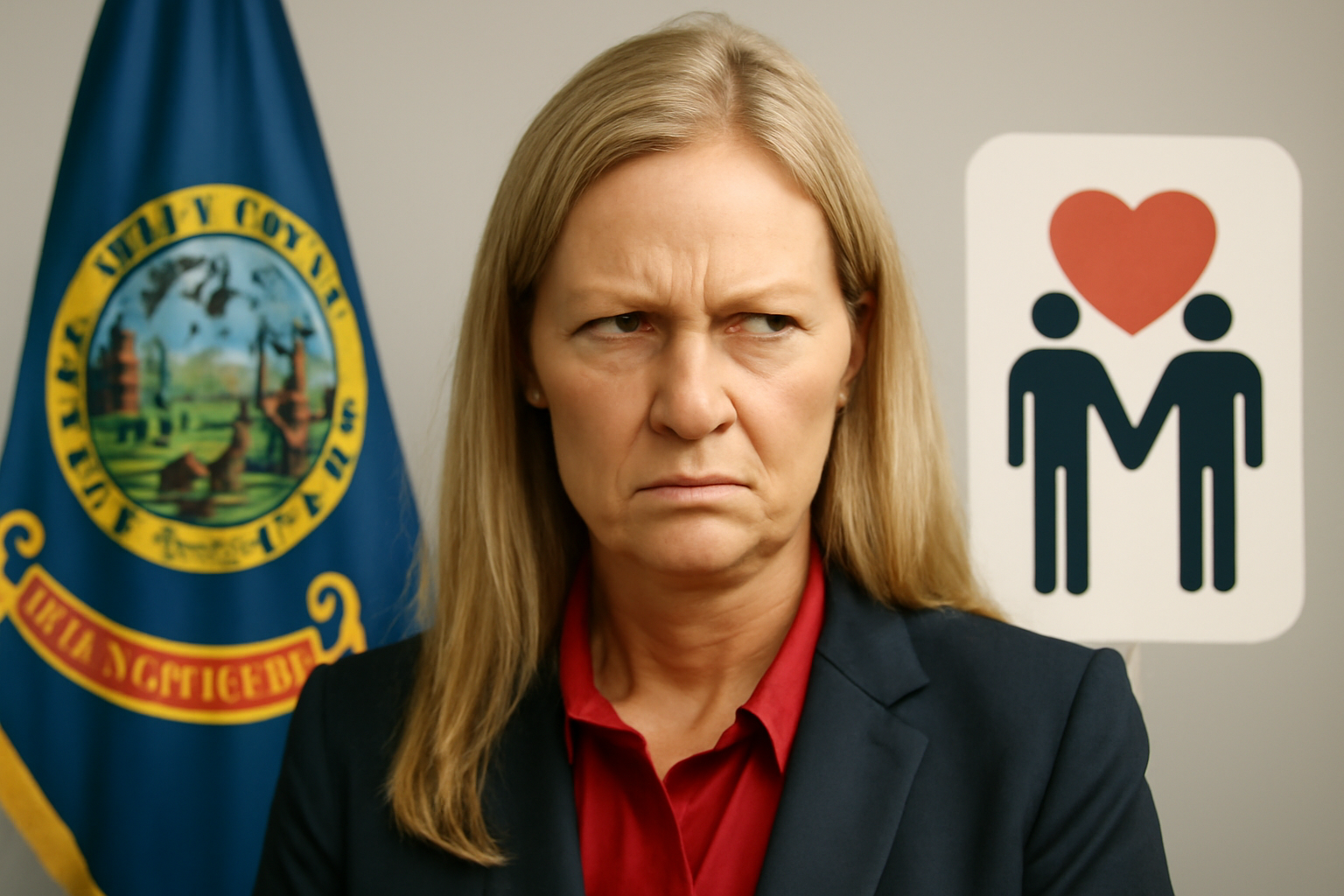
A recent legislative proposal in Idaho has spurred significant debate, as it seeks to redefine marriage in a way that could potentially outlaw same-sex unions, including gay marriage. This move has been labeled by critics as a misguided diversion from more pressing issues.
Representative Heather Scott, a member of the Republican party, introduced the resolution with the intent to overturn the landmark 2015 Supreme Court ruling in Obergefell v. Hodges, which legalized same-sex marriage across the United States. Her proposal advocates for what she terms the "natural definition of marriage," restricting marriage to a union between one man and one woman.
Challenge to a Historic Ruling
The decision in Obergefell v. Hodges was a turning point in American history, granting the right to marry to queer individuals nationwide, irrespective of their gender. This 5-4 decision by the Supreme Court was met with dissent from some conservative justices, including Clarence Thomas and Samuel Alito, who suggested that the ruling should be reevaluated.
During a recent hearing, Representative Scott asserted, “The purpose of this resolution is just to affirm our state authority to regulate marriage.” Her proposal is set to undergo further discussion and will be subject to a public hearing at a future date. If it progresses through the legislature, the resolution would then be forwarded to the Supreme Court for consideration.
Opposition and Criticism
Leaders of the Democratic Party have voiced strong opposition to Scott’s proposal. House Minority Leader Ilana Rubel and Senate Minority Leader Melissa Wintrow, both Democrats from Boise, have dismissed the resolution as a "sad distraction" from more important matters facing the state. They argued that this is yet another instance of the extreme faction within the Republican Party stirring up contentious social issues without cause.
In a statement to the press, the Democratic leaders emphasized, "Big government has no business telling consenting adults who they should love. This resolution may serve as a gimmick for gaining traction in GOP primaries, but it should be offensive to all Idahoans who value their individual rights and freedoms."
Legal Background and Implications
Same-sex marriage has been legally recognized in Idaho since 2014, following the District Court’s decision in Latta v. Otter, which found the state’s bans on same-sex marriage unconstitutional. Despite this ruling, Idaho’s constitutional definition of marriage has remained unchanged, still defining marriage as a union between a man and a woman.
The implications of Scott’s proposal have raised concerns among LGBTQ+ advocates and legal experts. If successful, the resolution could set a precedent for other states to challenge the rights of same-sex couples, potentially leading to a judicial confrontation over the scope of the Obergefell decision.
Critics argue that such efforts undermine the progress made towards equality and divert attention from critical issues such as healthcare, education, and economic development. The proposal has sparked widespread debate about the role of government in personal relationships and the ongoing struggle for LGBTQ+ rights in America.
Conclusion
The proposed resolution in Idaho highlights the ongoing tensions between different political ideologies and the enduring fight for LGBTQ+ rights. As the debate continues, many hope that reason and respect for individual liberties will prevail, ensuring that all citizens are afforded the same rights and freedoms.
Related Posts
Triumphant Trans Woman Wins Legal Battle and Inspires Others to Stand Up for Their Rights
Breaking new ground: a landmark victory in transgender rights After battling in courtrooms and enduring endless challenges, Diana Portillo, a transgender woman, has secured a monumental victory in her decade-long fight against workplace discrimination. The result? Nearly $1 million awarded in a historic settlement. But this isn't just a win on paper—it represents a powerful precedent in combati [...]
Pride Month in Latin America: Protests and Demands for Equality
**Celebrating Pride and advocating LGBTQ+ rights in Latin America** Pride Month in Latin America was a lively mix where celebration met activism. Communities united, not just throwing a party but making a stand—demanding equality and pushing governments toward better protection and rights recognition. Throughout Latin America, pride events erupted in marches and cultural displays, each with a c [...]
Transgender Erasure Actions Implemented by National Park Service
```html Trump administration's impact on national park service and transgender recognition The Trump administration made notable moves in undermining transgender representation, which included directing agencies like National Park Service not include "T" and "Q" when they refered “LGBTQ” in any official communication. This move seems part a broader plan by this administration aimed at reducin [...]